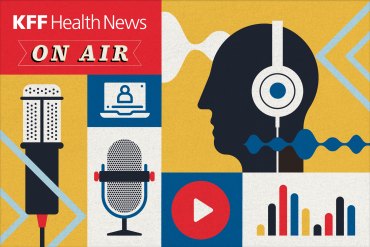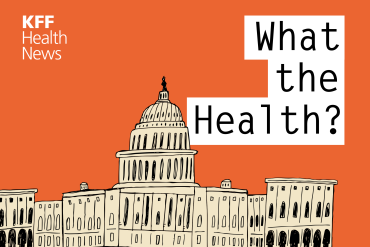Health Insurers Limit Coverage of Prosthetic Limbs, Questioning Their Medical Necessity
Advocates say it is discrimination and are arguing for “insurance fairness” on the grounds that people who have joints surgically replaced typically don’t face the same kinds of coverage challenges.
For Many Rural Women, Finding Maternity Care Outweighs Concerns About Abortion Access
A legislative effort to expand access to prenatal care in rural Oregon with mobile clinics was scuttled because those clinics would have provided abortions in rural areas. Opposition to the proposal shows that, even in states that ensure access to abortions, that care isn’t universally available or accepted.
Caseworkers Coax Homeless People out of Las Vegas’ Tunnels for Treatment
Street medicine providers and homeless outreach workers who travel into Las Vegas’ drainage tunnels have noticed an uptick in the number of people living underground, and it can be difficult to persuade them to come aboveground for medicine and treatment.
‘Waiting List to Nowhere’: Homelessness Surveys Trap Black Men on the Streets
Homelessness experts and community leaders say vulnerability questionnaires have worsened racial disparities among the unhoused by systematically placing white people in front of the line ahead of Black people. Now places like Los Angeles, Las Vegas, and Austin, Texas, are developing alternative surveys to reduce bias.
How America Lost Control of the Bird Flu, Setting the Stage for Another Pandemic
Exclusive reporting reveals how the United States lost track of a virus that could cause the next pandemic. Problems like the sluggish pace of federal action, deference to industry, and neglect for the safety of low-wage workers put the country at risk of another health emergency.
Obamacare Sign-Ups Lag After Trump Election, Legal Challenges
The number of new and returning enrollees using healthcare.gov — the federal marketplace that serves 31 states — is well below last year’s as of early December. Also, a Biden administration push to give “Dreamers” access to Obamacare coverage and subsidies is facing court challenges.
New Colorado Gun Law Aims To Shore Up Victim Services
A new tax on guns and ammunition in Colorado is set to take effect in the spring. Voters approved the tax, with most of the proceeds going to support services for crime victims and other social programs.
Native American Patients Are Sent to Collections for Debts the Government Owes
Federal law says Native Americans aren’t liable for medical bills the Indian Health Service promises to pay. Some are billed anyway as a result of backlogs or mistakes from the agency, financial middlemen, or health systems.
How Are States Spending Opioid Settlement Cash? We Built a Database of Answers
From addiction treatment to toy robot ambulances, we uncovered how billions in opioid settlement funds were used by state and local governments in 2022 and 2023. Find out where the money went.
As Rural America Grows More Diverse, Language Access Is Slow To Take Hold
The share of people who are Hispanic or Latino has grown to a little more than a quarter of the population in Elko, Nevada, a small city in the remote northeastern corner of the state. That growth in diversity has also led to an increasing number of people who speak a language other than English […]
Former Montana Health Staffer Rebukes Oversight Rules as a Hospital ‘Wish List’
The push-pull in Montana reflects a national tension as states try to decide what counts as fair checks on tax-exempt hospitals and industry players weigh in. The debate centers on whether nonprofit hospitals do enough good to earn their charitable status.
Federal Judge Halts Dreamers’ Brand-New Access to ACA Enrollment in 19 States
A federal judge sided with 19 states seeking an injunction against a Biden administration rule allowing recipients of Deferred Action for Childhood Arrivals to enroll in Affordable Care Act coverage and qualify for subsidies amid the annual open enrollment period.
Rural Governments Often Fail To Communicate With Residents Who Aren’t Proficient in English
Access to information in languages other than English is protected by various federal, state, and local policies. But researchers tracking them say that as rural America grows more diverse, people not proficient in English face added barriers to critical public health information and services.
How Measles, Whooping Cough, and Worse Could Roar Back on RFK Jr.’s Watch
Inoculation campaigns that protect children and adults from dangerous diseases rely on a delicate web of state and federal laws and programs. If senior officials cast doubt on vaccine safety, the whole system might collapse, especially in red states.
9 States Poised To End Coverage for Millions if Trump Cuts Medicaid Funding
About 3.7 million people are at immediate risk of losing health coverage should the federal government cut funding for Medicaid expansions, as some allies of President-elect Donald Trump have proposed. Coverage could be at risk in the 40 states that have expanded Medicaid.
With Trump on the Way, Advocates Look to States To Pick Up Medical Debt Fight
Patient and consumer advocates fear a new Trump administration will scale back federal efforts to expand financial protections for patients and shield them from debt.
Journalists Dish on New Weight Loss Drugs, RFK Jr.’s Fluoride Claims, and Reproductive Health
KFF Health News staffers and contributors made the rounds on national and local media this week to discuss their stories. Here’s a collection of their appearances.
What the Health? From KFF Health News: Trump’s Nontraditional Health Picks
Not only has President-elect Donald Trump chosen prominent vaccine skeptic Robert F. Kennedy Jr. to lead the Department of Health and Human Services, Trump also has said he will nominate controversial TV host Mehmet Oz to run the Centers for Medicare & Medicaid Services, which oversees coverage for nearly half of Americans. Meanwhile, the lame-duck Congress is back in Washington with just a few weeks to figure out how to wrap up work for the year. Rachel Cohrs Zhang of Stat, Sandhya Raman of CQ Roll Call, and Riley Ray Griffin of Bloomberg News join KFF Health News’ Julie Rovner to discuss these stories and more. Also this week, Rovner interviews Sarah Varney, who has been covering a trial in Idaho challenging the lack of medical exceptions in that state’s abortion ban.
Florida Gov. DeSantis’ Canadian Drug Import Plan Goes Nowhere After FDA Approval
Florida sued the FDA over what it said was a “reckless delay” in approving its drug importation plan. Now, nearly a year after the FDA gave the state the green light, the program has yet to begin.
Ex-Eye Bank Workers Say Pressure, Lax Oversight Led to Errors
Corneas, the windshields of the eye, are the most transplanted part of the human body. But four former employees at Rocky Mountain Lions Eye Bank told of numerous retrieval problems, including damage to eyes and removal from the wrong body.



























